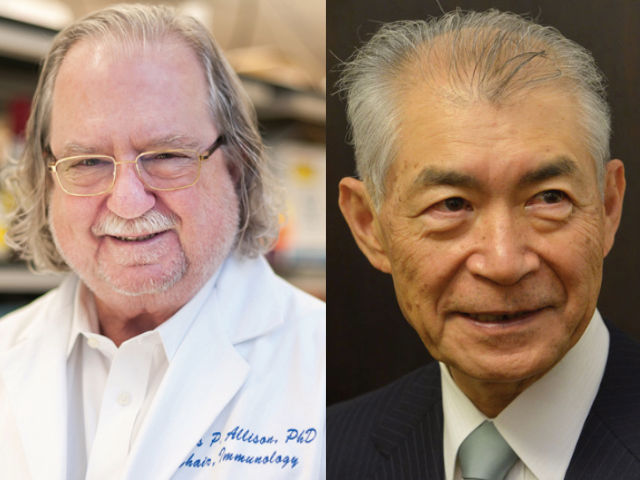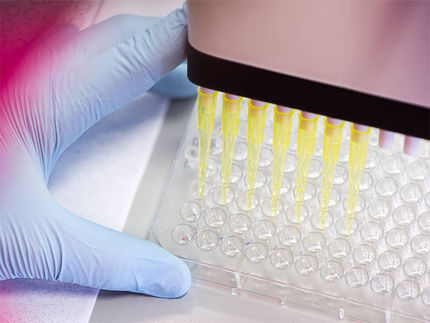Nobel Prize for Physiology or Medicine 2018 Announced
Appreciation of the research on cancer therapies
The researchers James P. Allison and Tasuku Honjo were announced today as this year's winners of the Nobel prize for Physiology or Medicine. Their achievements in the field of cancer therapy was groundbreaking and worthy of the Nobel Prize Committee's appreciation.

Left: James P. Allison, right: Tasuku Honjo
Nobel Foundation
With the help of the immune system, diseases can be fought, which are summarized under the term cancer. By switching off the regulation of the immune system, cells in the body that are characterised by a high division rate and proliferation can be combated, as do cancer cells.
Cancer kills millions of people every year and is one of humanity’s greatest health challenges. By stimulating the inherent ability of our immune system to attack tumor cells this year’s Nobel Laureates have established an entirely new principle for cancer therapy.
James P. Allison studied a known protein that functions as a brake on the immune system. He realized the potential of releasing the brake and thereby unleashing our immune cells to attack tumors. He then developed this concept into a brand new approach for treating patients.
In parallel, Tasuku Honjo discovered a protein on immune cells and, after careful exploration of its function, eventually revealed that it also operates as a brake, but with a different mechanism of action. Therapies based on his discovery proved to be strikingly effective in the fight against cancer.
Allison and Honjo showed how different strategies for inhibiting the brakes on the immune system can be used in the treatment of cancer. The seminal discoveries by the two Laureates constitute a landmark in our fight against cancer.
The scientific background of this research can be accessed via the link box on the right side.
Most read news
Topics
Organizations
Related link
Other news from the department science

Get the analytics and lab tech industry in your inbox
By submitting this form you agree that LUMITOS AG will send you the newsletter(s) selected above by email. Your data will not be passed on to third parties. Your data will be stored and processed in accordance with our data protection regulations. LUMITOS may contact you by email for the purpose of advertising or market and opinion surveys. You can revoke your consent at any time without giving reasons to LUMITOS AG, Ernst-Augustin-Str. 2, 12489 Berlin, Germany or by e-mail at revoke@lumitos.com with effect for the future. In addition, each email contains a link to unsubscribe from the corresponding newsletter.






















































